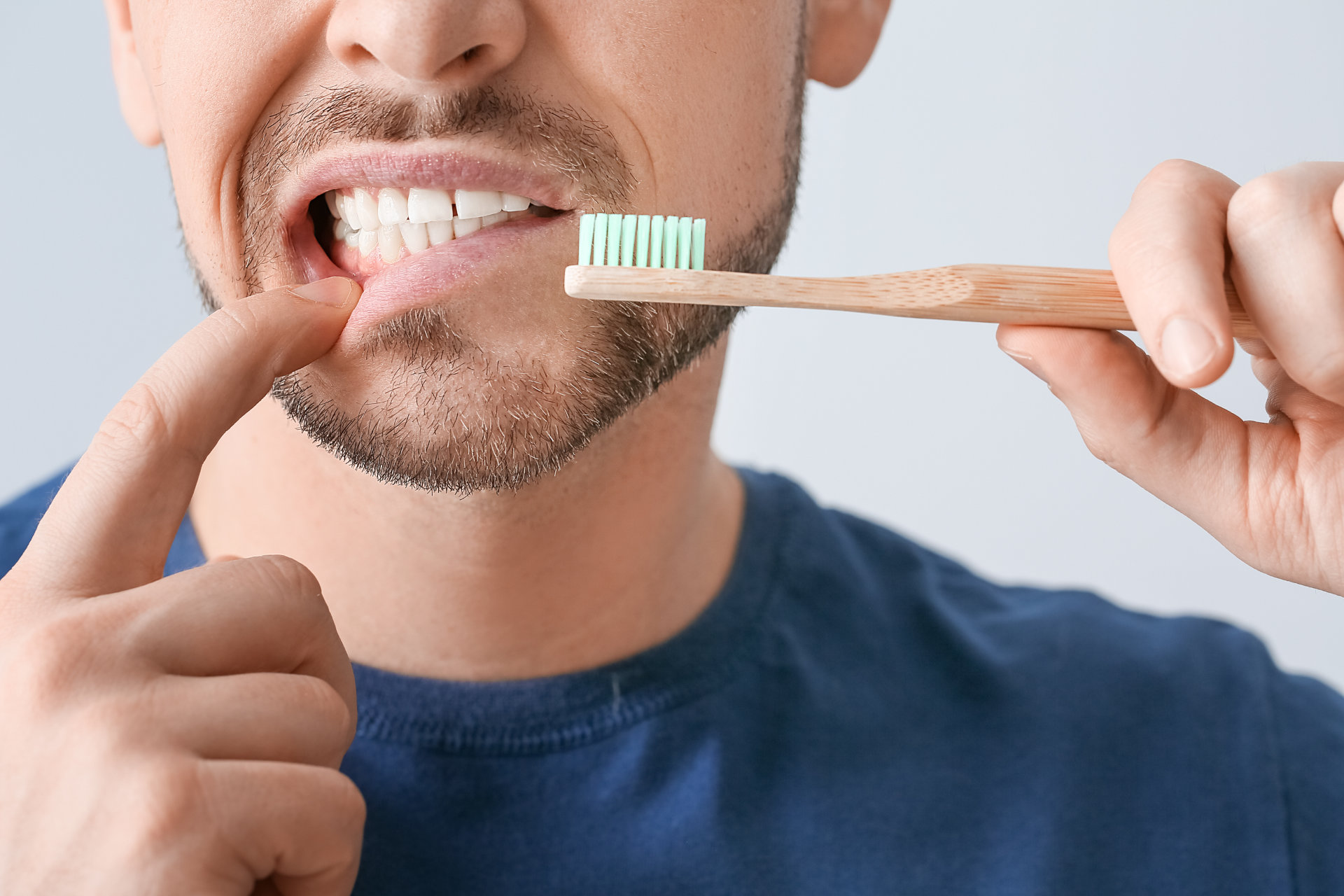07 May Are You Brushing Too Hard? Signs You Might Be Hurting Your Gums
 As any dentist will tell you, brushing your teeth is one of the most important habits for maintaining oral health. Unfortunately, though, too much of a good thing can do harm.
As any dentist will tell you, brushing your teeth is one of the most important habits for maintaining oral health. Unfortunately, though, too much of a good thing can do harm.
Many patients assume that brushing harder means getting teeth cleaner. In reality, aggressive brushing wears down enamel, irritates the gums, and causes long-term damage that’s difficult to reverse. If your toothbrush looks frayed after just a few weeks, or your gums feel sore after brushing, you
might be brushing too hard and putting your long-term oral health at risk. This article looks at the symptoms of over brushing and what you can do to fix it.
What Is Overbrushing?
Over Brushing happens when you apply too much pressure while brushing or use the wrong tools—like a hard-bristled toothbrush or abrasive toothpaste. It’s often paired with improper technique, such as scrubbing back and forth aggressively instead of using gentle, circular motions.
Over time, this harsh routine wears away your enamel, the outer layer that protects your teeth. It can also lead to gum recession, exposing the sensitive root surfaces and increasing your risk of cavities and tooth sensitivity.
Signs You’re Brushing Too Hard
Over brushing or excessively harsh brushing doesn’t always feel like a problem, until these symptoms start to add up. Here are some common signs that may indicate you’re brushing too hard:
- Receding gums – Gums that slowly pull away from the teeth can expose the root surface, which causes sensitivity and a higher risk of decay.
- Tooth sensitivity – If hot, cold, or sweet foods trigger a sharp zing, it could be due to enamel erosion or exposed roots.
- Frayed toothbrush bristles – Your toothbrush shouldn’t look worn out after a few weeks. Flattened or splayed bristles indicate you’re probably using too much pressure.
- Bleeding after brushing – If your gums bleed even when you’re not flossing, your brushing technique might be too rough.
- Notched teeth near the gumline – Small grooves or worn areas at the base of teeth—called cervical abrasions—are a common result of chronic over-brushing. These signs often appear gradually, so it’s important to pay attention and make small changes before lasting damage occurs.
How to Brush Smarter, Not Harder
Small changes in your brushing habits can help protect your enamel and gums while keeping your smile clean and healthy:
Use a soft–bristled toothbrush – It’s gentle on enamel and gums while still cleaning effectively. Avoid hard or medium bristles.
Brush in gentle, circular motions – Scrubbing back and forth can wear down your teeth. Let the bristles do the work.
Stick to the two–minute rule – Brushing longer doesn’t mean brushing harder. Two full minutes, twice a day, is ideal.
Try an electric toothbrush with a pressure sensor – These can alert you when you’re pressing too hard and help reinforce good habits.
Don’t rely on brushing alone – Floss and use mouthwash to remove buildup between teeth and below the gumline.
When to See a Dentist About Gum Damage
If you’re noticing gum recession, bleeding, or increased sensitivity, it’s time to check in with your dentist. These symptoms can be signs of over brushing or other issues that need attention. And the sooner they’re addressed, the easier they are to manage. At Imperial Dental Center, we provide gentle, comprehensive dental care tailored to your needs. Whether it’s deep cleanings, gum health monitoring, or protective treatments, we help patients maintain strong, healthy smiles at every stage. Schedule your next visit with Imperial Dental Center for personalized guidance and care that keeps your smile in great shape.
At Imperial Dental Center, we’re happy to demonstrate proper brushing technique and offer suggestions for the right tools during your next visit.

Dr. Dragana Angelova
Imperial Dental Center
“We love to see you smile”

